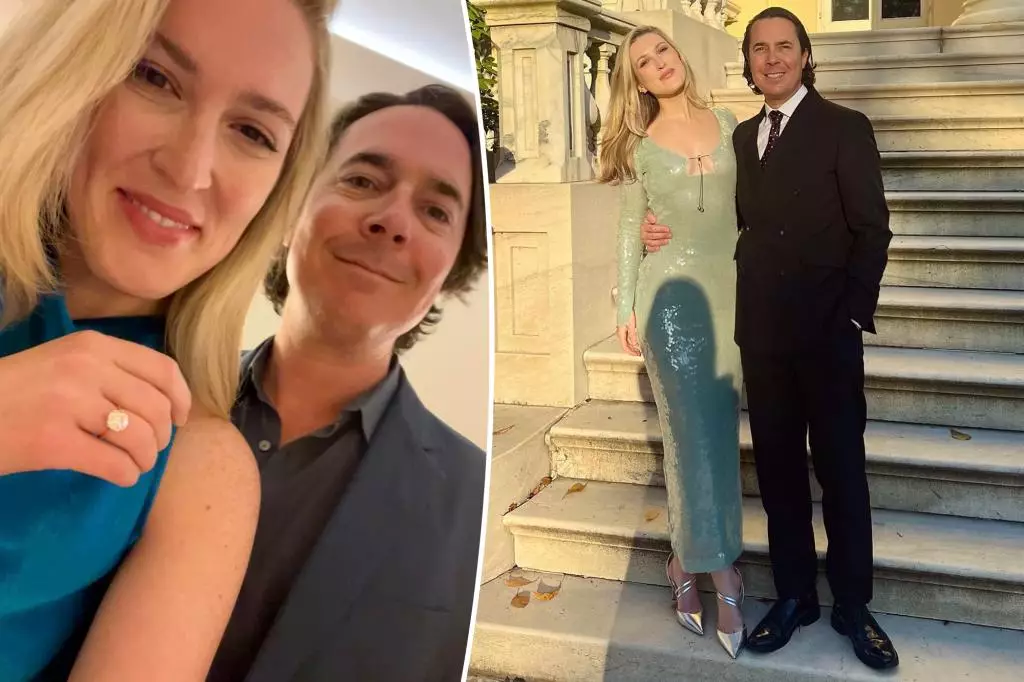In the ever-churning waters of political journalism, the recent fallout between Olivia Nuzzi and Ryan Lizza serves as a striking emblem of the personal entanglements that often accompany public life. Once a celebrated couple in the heart of Washington, D.C., both journalists have thrust themselves into a maelstrom of scandal and legal wrangling that raises questions about ethics, reputation, and the sensationalism of their respective careers. This article endeavors to dissect their tumultuous relationship, exploring not just the facts but the broader implications of their unraveling tale.
At its heart, the sequence of events underscores the complexities of modern relationships, especially within professional circles where public image is paramount. Nuzzi, known for her incisive reporting, found herself embroiled in a highly publicized affair with Robert F. Kennedy Jr. This entanglement not only jeopardized her position at New York Magazine but also seemed to turn her personal life into fodder for gossip columns. The affair’s exposure in September sent shockwaves through the industry, revealing the often hidden tensions between personal ambitions and professional ethics.
In an unexpected twist, Nuzzi sought a restraining order against Lizza, a co-traveler in the world of Beltway journalism. She alleged that he threatened to release damaging information about her, pushing the narrative of her victimization into the spotlight. Yet, despite the severity of her claims, Nuzzi’s subsequent withdrawal of the restraining order raises eyebrows about the authenticity of her accusations. It paints a picture of a sudden retreat from a high-stakes legal battle—one that begs questions about whether she was indeed the aggrieved party or if her narrative was a strategic move in the heady realm of media relations.
Lizza’s vehement rebuttal to Nuzzi’s claims revealed a contentious dynamic marked by mutual blame. He dismissed her actions as a ploy to manipulate the public narrative, claiming that her accusations were fabricated. His vehement defense of his character and professionalism indicates not just a personal affront but a potential threat to his career, underscoring how deeply intertwined personal lives can become in professional settings. The implications of such accusations are grave, particularly within an industry that relies heavily on credibility and trust.
The mutual exchanges of vitriol mark a disturbing trend prevalent among public figures today—using litigation and media coverage as tools for damage control and public relations. Both journalists, recognized for their work, have found themselves in a scandal that threatens to eclipse their professional achievements. Unfortunately, the public often becomes a voyeur in these narratives, drawn into the intricacies of betrayal and ambition but left questioning the integrity of those involved.
The Nuzzi-Lizza saga goes beyond mere personal drama; it serves as a cautionary tale for journalists navigating the thorny intersection of professional integrity and personal relationships. In an age where reputations can be quickly forged or destroyed through social media and public discourse, the pressure to maintain an impeccable image becomes ever more intense. Herein lies a dual responsibility—one to oneself and one to the public. Journalists, as gatekeepers of information, must operate with a level of transparency and accountability that carries profound implications for their careers and the industry at large.
The spotlight on private lives can often obscure the professional contributions of individuals but should also serve as a reminder of the need for ethical conduct, both in personal and professional spheres. The challenge lies in distinguishing between the narrative that sells and the narrative that informs, a balancing act that becomes precarious in the face of personal scandal.
Ultimately, the Nuzzi and Lizza affair serves as a swirling microcosm of the challenges faced by contemporary journalists. The emotional, legal, and ethical dimensions of their story invite reflection on what constitutes integrity in both personal relationships and professional pursuits. As their tale continues to develop, one can only hope that each party takes away vital lessons about accountability, the weight of public perception, and the pivotal role of ethics within the landscape of journalism. In the end, it is not just careers on the line, but reputations forged and fractured in the unforgiving light of the media’s glare.

